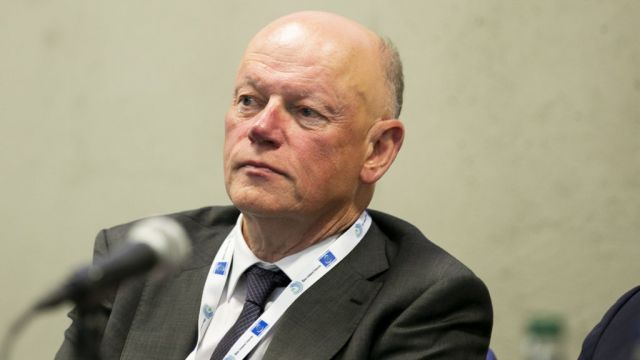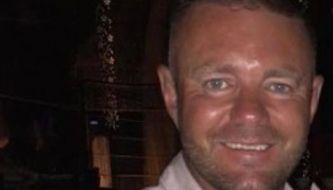The State's chief justice has warned of the rise of “aggressive nationalism” across Europe, and said it is not confined to just one or two countries.
Chief Justice Donal O’Donnell said during a talk at a Dublin university that “we are facing – in ways some of us thought unimaginable – threats and challenges that have more an echo of the mid-20th century than the bright, modern future we imagined”.
He added: “It is a real and existential challenge to some of the values that we hold dear.”
He said that a week ago he heard a senior public official from what he regarded as “a very stable European state” launch “an astonishing attack on the concept of judicial independence”.
He said that the official attacked the rights that were protected under documents like the Convention of Human Rights while in the presence of senior figures of the EU courts.
“And there was an extraordinary resonance to me in Central Europe to hear these sentiments being expressed so vehemently, rudely and confidently.
“It brought home to me that the issues in relation to the rule of law are not issues in relation to one or two countries.
“The problems we face with populism, with aggressive nationalism, cannot be isolated into some sort of isolation in one or two countries until we hope that the internal system will somehow fight off the infection.
“That is something that is happening throughout Europe, and the people of those countries look to the Court of Human Rights as a beacon.”
Mr O’Donnell was one of a number of senior legal figures who spoke at a conference at DCU’s St Patrick’s campus about human rights and the rule of law amid a time of political instability across Europe.
Professor Daire Keogh, President of Dublin City University welcoming Judge Síofra O'Leary Vice President, Judge Robert Spano President of the European Court of Human Rights, and Chief Justice Donal O'Donnell to the DCU St. Patrick's Campus. pic.twitter.com/ykIK20E1qU
— Courts Service of Ireland (@CourtsServiceIE) October 21, 2022
Another of the speakers was Siofra O’Leary, who will be the first female president and the first Irish president of the European Court of Human Rights in its 63-year history.
In her address, she outlined one example of the cases before the court in which a German national – after being stopped at the North Macedonian border – was detained, beaten and sexually assaulted before being held captive in Kabul for five months.
She cited other breaches of the European Convention of Human Rights that had taken place in Italy, Romania, Lithuania and Poland.
“These are different but very stark examples of what rule of law suspension, breakdown or total dysfunction looks like in practice before our court in Strasbourg.”
She said that the court’s judgement are often on “highly delicate and contested, ethical, moral and social questions” and applicants have sometimes had difficulty raising them at national level.
“When finding a violation in a judgement like Christine Goodwin, on the lack of legal recognition of her post-operative sex, and about the legal status of transsexuals in the United Kingdom, we see the court responding to a continuing international friend.”
She continued: “The court has sought to remedy blind spots within national systems, blind spots which may have been very difficult for national judges to identify or remedy given the fact that their roots are to be found in national, cultural, social, or even religious heritage.”
She said that in recent months, the court has dealt with cases relating to mass surveillance and privacy rights, domestic violence and mentally disabled people in the criminal justice system.
The European Court of Human Rights, which is not an EU court, implements the rights enshrined in the European Convention of Human Rights.
It encompasses 46 countries and 675 million people.
Mr O’Donnell said there was an “enormous sense of pride” among legal figures in Ireland that the European court had elected Ms O’Leary, “one of ours”, to be their president.
He said of Ms O’Leary: “The people of those countries think it is really important that an Irish woman is leading that court.”
The outgoing president of the court, Icelandic judge Robert Spano, said Ms O’Leary had “brought forward an element of professionalism, brilliance and leadership” that would help “to navigate the turbulent seas that await us”.
Ms O’Leary takes up the role on November 1st for a two-and-a-half year term.
Among those in attendance at the DCU event were former chief justice Frank Clarke and Supreme Court judge Seamus Woulfe.







